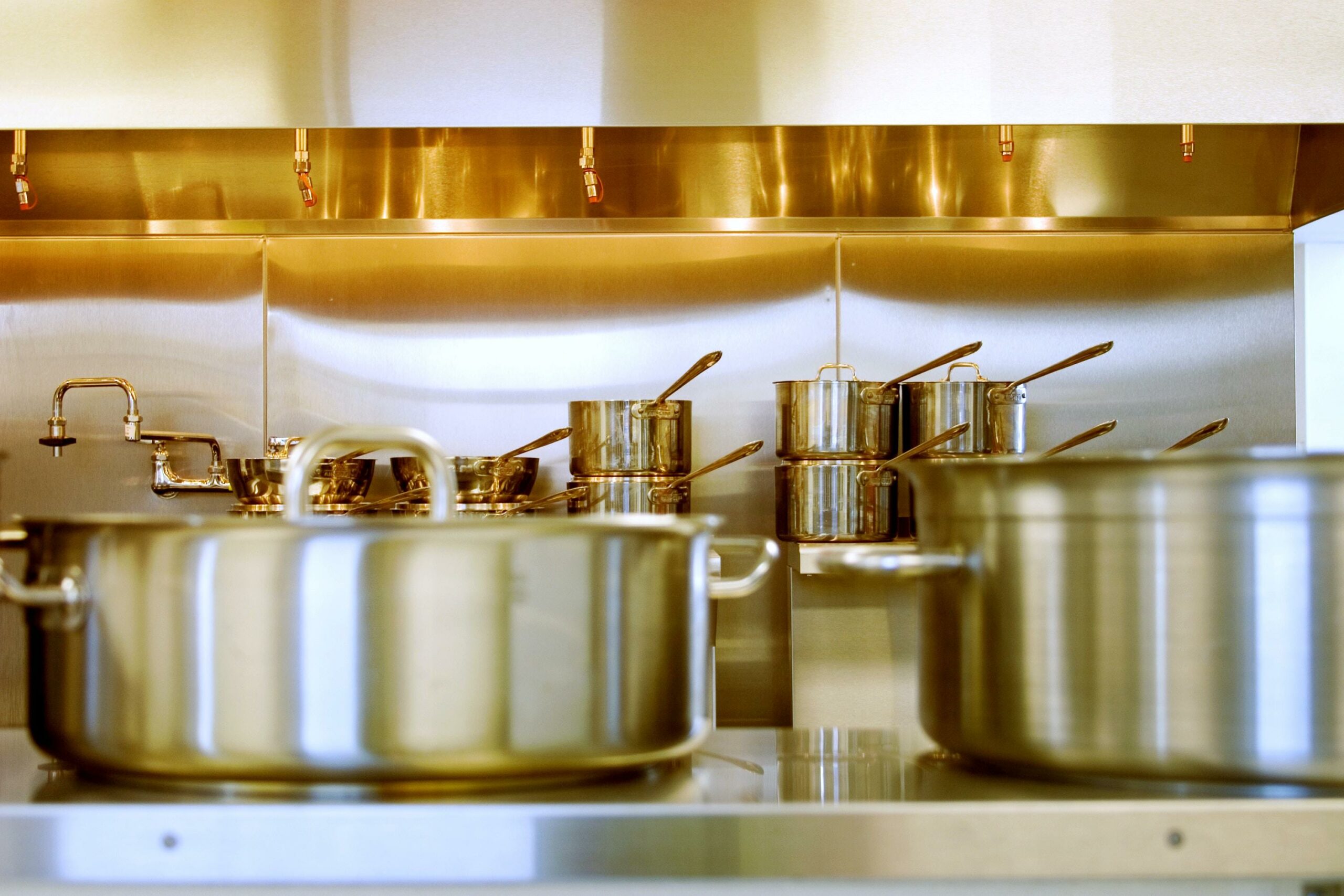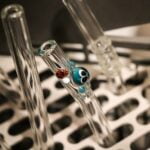Are you ready to dive into the fascinating world of stainless steel? If you’re seeking to uncover the endless benefits of this remarkable material, then you’ve come to the right place. In this article, we will take a deep dive into the versatility, durability, and eco-friendly nature of stainless steel, shining a light on its remarkable properties and its remarkable place in various industries. As a seasoned editorial writer with a passion for sustainability and a background in engineering, I am eager to share my unique perspective and expertise on this subject. So, sit back, relax, and join me on this enlightening journey as we explore the remarkable qualities of stainless steel.

The Versatility, Durability, and Eco-Friendly Nature of Stainless Steel
Stainless steel, a remarkable material known for its versatility, durability, and eco-friendly nature, has become a popular choice in various industries. From construction to automotive, it offers countless benefits that make it stand out among other materials. Let’s delve into why stainless steel is not only a sustainable choice but also an incredibly versatile and long-lasting option.
The Endurance and Longevity of Stainless Steel
When it comes to durability, stainless steel truly shines. Its unique composition, which includes a mixture of iron, chromium, nickel, and other elements, gives it exceptional resistance to corrosion, staining, and heat. This durability translates into long-lasting products that can withstand the test of time.
Investing in reusable stainless steel products not only saves money but also reduces waste and promotes sustainability. Unlike plastic products that quickly wear out, stainless steel items can accompany you for years, if not decades. Their high resistance to scratches and dents ensures their endurance even in tough conditions, making them ideal for daily use or in demanding industries.
“The durability of stainless steel ensures products that can withstand everyday use and remain intact, reducing the need for frequent replacements.”
The Eco-Friendly Advantages of Stainless Steel
Beyond its impressive durability, stainless steel offers a range of eco-friendly benefits. Unlike plastic, which often contains harmful toxins, stainless steel is a safe and reliable choice. It is free from chemicals like BPA and phthalates, providing a healthier alternative for both humans and the environment.
One of the most significant environmental advantages of stainless steel is its recyclability. With a high scrap metal value, stainless steel can be easily recycled and reused. This not only reduces the demand for raw materials but also minimizes waste and energy consumption. As part of the circular economy, stainless steel actively contributes to sustainable practices.
“By choosing stainless steel and supporting its recycling efforts, we can contribute to a greener future and reduce our reliance on raw materials.”
The Sustainable Choice and Versatility of Stainless Steel
Stainless steel is not only durable and eco-friendly, but it is also incredibly versatile. Its unique properties allow it to be tailored for specific applications across various industries. Whether it’s used in construction, automotive manufacturing, or even in everyday household items, stainless steel offers unparalleled flexibility and adaptability.
With its lightweight yet high-strength characteristics, stainless steel is a potential replacement for other materials that may have a higher environmental impact. Its formability allows designers and engineers to explore creative possibilities while minimizing the overall weight of a product. This versatility opens up a world of opportunities for innovative designs and efficient material usage.
“The versatility of stainless steel empowers industries to explore new possibilities while reducing the environmental footprint of their products.”
In conclusion, the versatility, durability, and eco-friendly nature of stainless steel make it a material worth considering. Its ability to resist corrosion and endure challenging conditions ensures the longevity of products, reducing the need for replacements. By choosing stainless steel, we contribute to a healthier environment by minimizing waste and harmful toxins. With its endless possibilities, stainless steel opens doors to innovative designs and sustainable practices.
Pros of Stainless Steel:
- Exceptional durability and resistance to corrosion, staining, and heat.
- Reusability of stainless steel products leads to cost-saving and waste reduction.
- Free from harmful toxins commonly found in plastic.
- High scrap metal value, making stainless steel highly recyclable.
- Versatility allows for tailored applications in various industries.
- Lightweight yet strong material, potentially replacing other materials with higher environmental impacts.
Cons of Stainless Steel:
- Production of stainless steel requires energy-intensive processes.
- Raw material extraction for stainless steel production may have environmental impacts.
- Improper disposal of stainless steel products can hinder recycling efforts.
Remember, the versatility, durability, and eco-friendly nature of stainless steel make it a sustainable choice with endless benefits. Whether it’s for construction, automotive, or even everyday household items, stainless steel offers resilience, reliability, and a greener future. So why not choose stainless steel and embrace its many advantages?
Note: This article is for informational purposes only and is not intended as professional advice or endorsement of specific products or manufacturers.
Stainless steel is a versatile and durable material that is used in a variety of applications. Whether you are a professional in the industry or simply curious about its properties, our website provides comprehensive information about stainless steel. Discover the various grades, finishes, and uses of stainless steel by clicking here: information about stainless steel. Gain valuable insights and expand your knowledge on this fascinating material. Don’t miss out on this opportunity to delve into the world of stainless steel.
FAQ
Q: What makes stainless steel a versatile material?
A: Stainless steel’s versatility stems from its ability to be tailored for specific applications. Its strength, durability, and formability allow for a wide range of uses in various industries, including construction and automotive.
Q: How durable and long-lasting are stainless steel products?
A: Stainless steel products are known for their durability and longevity. Unlike other materials, they are resistant to corrosion, rust, and wear. This makes them highly suitable for applications where longevity is crucial, resulting in significant cost savings over time.
Q: Are stainless steel products free of toxins often found in plastic?
A: Yes, stainless steel products are free of toxins commonly found in plastic. Unlike plastic products, stainless steel does not contain harmful chemicals like BPA, phthalates, or lead. This makes it a safer and healthier choice for consumers.
Q: How is stainless steel an eco-friendly material?
A: Stainless steel is considered an environmentally friendly material for several reasons. Firstly, it is made from natural elements, minimizing its impact on the environment. Additionally, stainless steel is highly recyclable and has a high scrap metal value, reducing the need for virgin raw materials and lowering energy consumption during production.
Q: How does stainless steel contribute to the circular economy?
A: Stainless steel plays a significant role in the circular economy due to its high rate of recycling. It can be recycled repeatedly without losing its quality or performance. This reduces the depletion of natural resources and minimizes waste, making stainless steel an environmentally sustainable choice.
- Unlock Elemental 2 Secrets: Actionable Insights Now - April 2, 2025
- Lot’s Wife’s Name: Unveiling the Mystery of Sodom’s Fall - April 2, 2025
- Photocell Sensors: A Complete Guide for Selection and Implementation - April 2, 2025
















